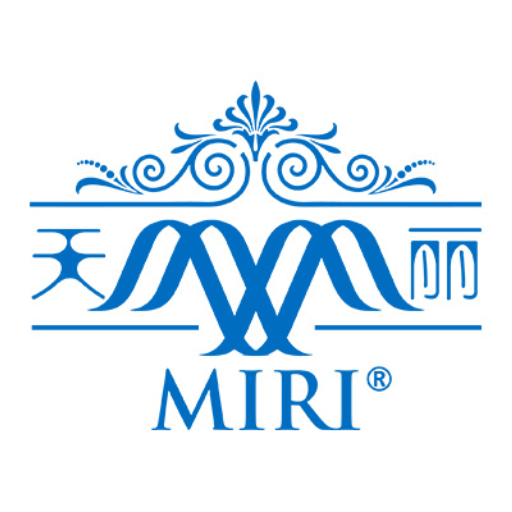The Collagen Revolution: Transforming Your Beauty from Within
In the pursuit of timeless beauty and optimal health, one protein stands above the rest: collagen. Often called the “glue” that holds our bodies together, this remarkable compound is the most abundant protein in the human body, making up approximately 30% of our total protein content. As we age, our natural collagen production declines, leading to visible signs of aging and decreased overall vitality. Understanding collagen’s role in our bodies and learning how to support its production can be your secret weapon to maintaining youthful skin, strong joints, and vibrant health well into your later years.
Understanding Collagen: The Body’s Building Block
Collagen is a complex structural protein that provides strength and elasticity to various connective tissues throughout the body. Found in our skin, bones, tendons, ligaments, cartilage, and blood vessels, collagen acts as a scaffold that supports tissue structure and integrity. Think of it as the essential framework that keeps everything in its proper place and functioning optimally.
There are at least 16 different types of collagen, with Types I, II, and III being the most prevalent in the human body. Type I collagen is the most abundant and is found in skin, tendons, ligaments, bones, and teeth. Type II is primarily located in cartilage, while Type III is often found alongside Type I in skin and blood vessels. Each type serves specific functions, contributing to our overall health and appearance.
The Science of Collagen Decline
Beginning in our mid-20s, our bodies start producing less collagen at a rate of about 1-1.5% per year. This natural decline accelerates significantly after menopause, particularly for women due to decreased estrogen levels, which play a crucial role in collagen production. The result? Fine lines, wrinkles, sagging skin, joint discomfort, and weakened connective tissues.
Environmental factors such as excessive sun exposure, smoking, poor nutrition, high sugar intake, and chronic stress can further accelerate collagen breakdown. UV radiation, for instance, can degrade up to 30% of our skin’s collagen content within just a few days of excessive sun exposure, highlighting the importance of sun protection and collagen-boosting strategies.
Benefits of Collagen for Women’s Health
Collagen offers numerous benefits that extend far beyond skin deep. For women specifically, maintaining healthy collagen levels can help with:
- Improved skin elasticity and reduced wrinkles
- Enhanced hydration and plumpness
- Stronger, healthier hair and nails
- Better joint mobility and reduced discomfort
- Gut health support
- Cellular regeneration
Research has shown that collagen supplementation can significantly improve skin hydration, elasticity, and density. In one study, women who took collagen peptides for eight weeks experienced increased skin hydration and a significant reduction in wrinkles compared to the placebo group.
Natural Ways to Boost Collagen Production
While our bodies naturally produce less collagen as we age, certain lifestyle and dietary choices can help support and even enhance collagen synthesis:
- Consume Collagen-Boosting Nutrients: Vitamin C is essential for collagen production, as it helps convert amino acids into collagen. Other important nutrients include copper, zinc, and amino acids like proline and glycine. Foods rich in these compounds include citrus fruits, berries, leafy greens, nuts, seeds, and bone broth.
- Incorporate Hydrolyzed Collagen: Hydrolyzed collagen peptides are broken down into smaller molecules that are easily absorbed by the body. Miri Collagen Protein provides a high-quality source of hydrolyzed collagen that can help replenish your body’s stores and support skin elasticity and joint health.
- Protect Your Skin: Minimize sun exposure, wear protective clothing, and use broad-spectrum sunscreen to prevent collagen degradation from UV radiation.
- Limit Sugar and Processed Foods: High sugar intake can lead to a process called glycation, where sugar molecules attach to collagen fibers, making them stiff and prone to breaking down.
- Stay Hydrated: Proper hydration helps maintain skin plumpness and elasticity, supporting collagen’s structural role in the skin.
Collagen Supplementation: What You Need to Know
When choosing a collagen supplement, quality matters. Look for hydrolyzed collagen peptides (also known as collagen hydrolysate), which have been broken down into smaller, more easily absorbed molecules. Marine collagen is particularly beneficial for skin health due to its smaller particle size and high absorption rate.
For optimal results, consistency is key. Most studies showing significant benefits from collagen supplementation used doses of 2.5-15 grams daily, taken consistently for at least 8-12 weeks. The effects are cumulative, meaning you’ll likely notice gradual improvements in skin hydration, elasticity, and overall appearance over time.
In addition to direct supplementation, you can also boost your body’s natural collagen production through topical applications. Products like Miri Rose Whitening contain ingredients that help stimulate natural collagen production while reducing melanin formation for a brighter, more youthful complexion.
Integrating Collagen Into Your Daily Routine
Adding collagen to your daily routine is easier than you might think. Consider these simple approaches:
- Mix collagen powder into your morning coffee, tea, or smoothie
- Use collagen-infused skincare products for topical support
- Include bone broth in your diet for natural collagen sources
- Choose collagen-rich foods like fish, chicken, egg whites, and citrus fruits
Embracing the Collagen Advantage
As we’ve explored, collagen is far more than just a buzzword in the beauty industry—it’s a fundamental component of our body’s structure and function. By understanding the science behind collagen and implementing strategies to support its production, you can transform your beauty from within, achieving healthier skin, stronger joints, and enhanced vitality at any age.
Remember that true beauty and wellness come from nourishing your body from the inside out. By making collagen-boosting practices a part of your daily routine, you’re not just addressing visible signs of aging—you’re investing in your long-term health and well-being.
Ready to experience the collagen revolution? Start by incorporating the strategies outlined in this guide and consider adding a high-quality collagen supplement to your regimen. Your body—and your reflection in the mirror—will thank you.
